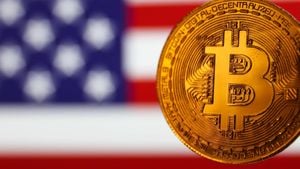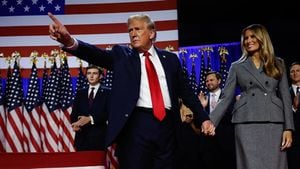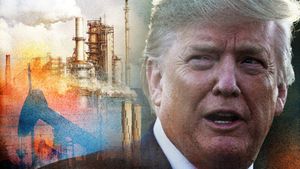Recent tensions between Ben & Jerry's and its parent company, Unilever, have reached new heights as the ice cream maker has accused the multinational corporation of suppressing its voice on key issues, particularly the Palestinian conflict. On Wednesday, the company filed a lawsuit alleging Unilever has restricted its attempts to publicly express support for Palestinian refugees, threatening legal action and board restructuring if they persisted.
This event adds to the long-standing conflict between the two entities, ignited back in 2021 when Ben & Jerry's announced plans to cease operations within Israeli-occupied territories, citing alignment with its social mission. This declaration drew considerable backlash, including divestment from some shareholders of Unilever. Following the public outcry, the ice cream company filed suit against Unilever after the latter sold its Israeli operations to its local licensee, enabling the continuance of marketing activities across both Israel and the West Bank. That previous legal quarrel concluded with a settlement earlier this year, the details of which remain confidential.
Now, the company claims Unilever has again breached this agreement. The lawsuit reveals Ben & Jerry's stance on various humanitarian issues, stating they have made multiple attempts to call for peace and advocate for Palestinian rights but have been barred from doing so by Unilever. "Ben & Jerry's has on four occasions attempted to publicly speak out in support of peace and human rights," the suit asserts, indicating suppression at the corporate level.
Unilever has, predictably, dismissed these claims. A spokesperson stated, "Our hearts go out to all victims of the tragic events in the Middle East. We reject the claims made by B&J’s social mission board, and we will defend our case very strongly." This back-and-forth highlights the complexity of balancing corporate interests with social responsibility—a frequently turbulent domain within the corporate world.
Notably, this latest controversy surfaces amid widespread calls for humanitarian support for the Palestinian populace following intense conflict within the region. Ben & Jerry's independent board expressed concern about potential perceptions of bias if they were to address the rising humanitarian crisis, particularly maintaining neutrality and appeasing various stakeholders.
Since co-founders Ben Cohen and Jerry Greenfield launched the company from humble beginnings back in 1978, Ben & Jerry's has maintained its image as socially conscious. Even after Unilever acquired the brand two decades ago, the brand has remained staunchly committed to its original values. Efforts to provide humanitarian assistance have recently encountered setbacks, particularly when Unilever overruled the choice of organizations Ben & Jerry's decided to support financially.
Specifically, Unilever expressed concerns about affiliations with individuals and organizations it believes could fuel accusations of anti-Semitism, such as the left-leaning Jewish Voice for Peace, which the company deemed "too harsh" concerning the Israeli government. The contention is indicative of the fraught conversation surrounding Israel and Palestine, one characterized by sharp divides and passionate opinions.
Adding another layer of complexity, Israeli finance minister Bezalel Smotrich's recent comments about amplifying Israeli sovereignty over the West Bank stirred international outrage. Smotrich suggested during a speech the agenda for annexation was clear, with focus projected for the year 2025. Such pronouncements have received condemnation not only from critics within Israel but also from the British government, which labeled the potential annexation as illegal under international law and detrimental to peace efforts.
UK Middle East Minister Hamish Falconer firmly stated, "Annexation only undermines the prospects for peace, would lead to greater instability and would be illegal under international law. The Israeli government must reject this." Falconer’s remarks call for immediate action from Israeli leadership to reposition itself away from pursuing such divisive policies.
At the heart of these discussions lies the enduring Israeli-Palestinian conflict, with perspectives varying vastly across political, social, and economic arenas. The two-state solution remains the widely touted pathway to resolving deep divisions, with various international bodies urging both sides to recommit to negotiations aimed at peace.
While Ben & Jerry's navigates its internal contest between social advocacy and corporate oversight, the larger political atmosphere grows increasingly strained. Tensions present themselves not only between brands and their parent companies but also impact international relations and global public opinion.
Looking forward, both Ben & Jerry's and the Israeli government face scrutiny on their respective stances related to the Palestinian plight. With the state budget for 2025 looming and anticipated austerity measures awaiting implementation, Israeli ministers grapple with significant public discontent—an emotional gusher fueled by economic strife and geopolitical upheaval.
The thickening web of connections highlights the need for conscientious leadership and accountability among both corporations and national officials. Whether Unilever modifies its approach to social issues or Smotrich is held accountable for his ambitions concerning the West Bank could dictate not just enterprise futures but the broader outlook for Israeli-Palestinian relations moving forward.
This tumultuous season provides ample ground for debate, leaving consumers, stakeholders, and governments alike to ponder the interplay between commerce, advocacy, and human rights.



